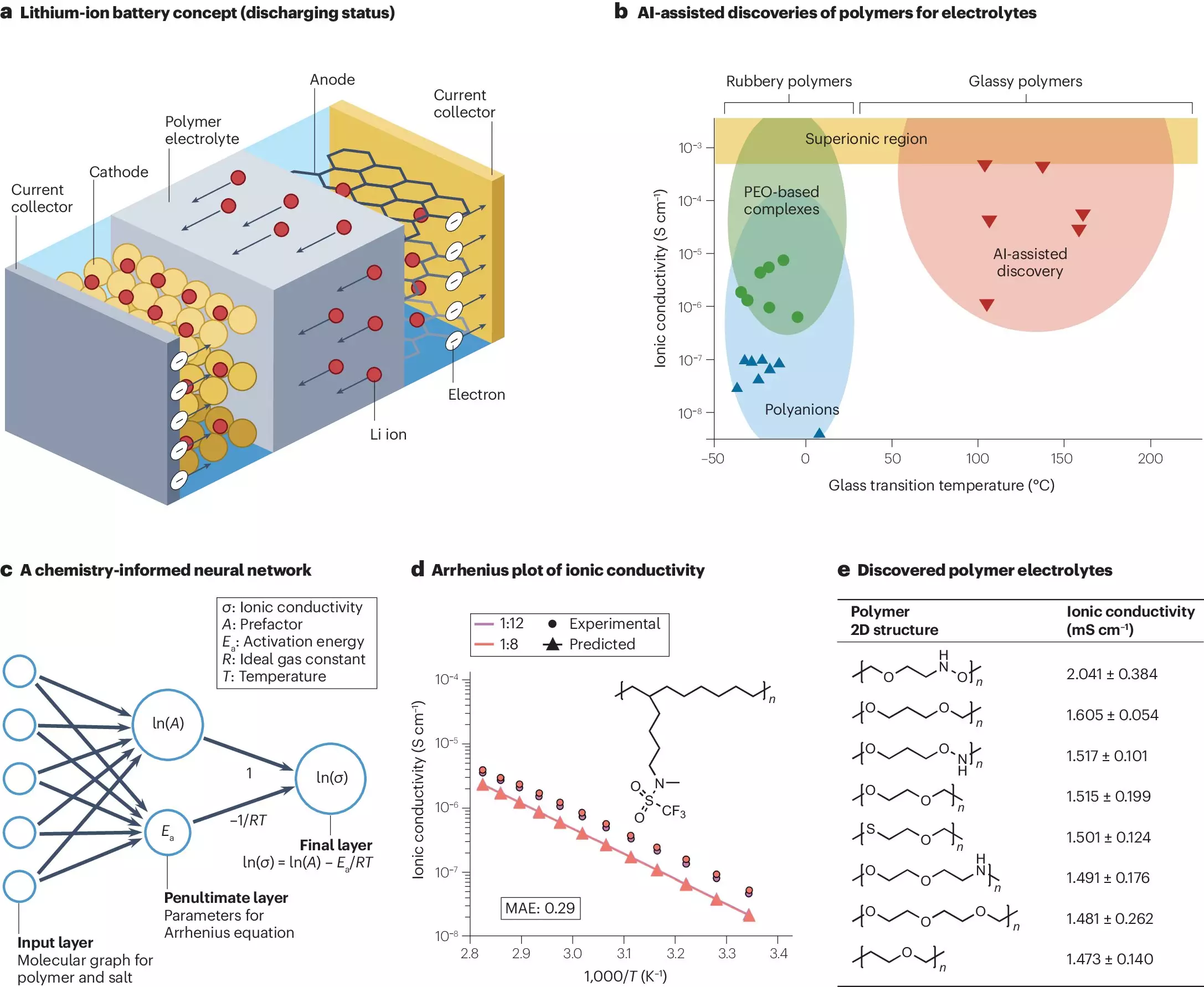Polymers are integral to our modern existence, playing crucial roles in multiple industries, including automotive, electronics, and consumer goods. These macromolecules, made up of long repeated chains of molecular units, have revolutionized how we approach product development and material efficiency. Well-known examples like Nylon, Teflon, and Kevlar have become household names, but the quest for novel polymers is far from over. In recent years, a new frontier has emerged in this quest: artificial intelligence (AI). Researchers at Georgia Tech have been at the forefront, utilizing AI to drive advancements in polymer discovery, optimizing materials for various critical applications.
Dr. Rampi Ramprasad and his team at Georgia Tech are pioneering the integration of AI in materials research, particularly in polymer informatics. Their innovative methodologies leverage advanced machine learning (ML) algorithms to analyze existing material properties and predict new compositions that could cater to specific performance criteria. This significant shift in materials discovery began with the Materials Genome Initiative, initiated over a decade ago, which sought to accelerate the pace of innovation in materials science. This initiative showcased how computational methods could enhance efficiency in reaching groundbreaking materials.
Recent publications in notable journals, including Nature Reviews Materials and Nature Communications, reveal the tangible progress made by Ramprasad’s group. Their studies not only assess existing polymers but also enable the design of new subclass materials with specialized functionalities, as seen in their successful work on electrostatic energy storage polymers.
The research process undertaken by Ramprasad and his colleagues is an intricate yet meticulously structured cycle. It commences with selecting application-specific property targets that the desired polymer must meet. Once these benchmarks are established, ML models are trained on substantial datasets comprising various polymer properties. The algorithms then generate potential polymer structures that are theoretically polished for practical synthesis and application.
These theoretically designed polymers are critically validated through physical experimentation. Successful results result in the iterative refinement of predictive algorithms, strengthening the team’s models and enhancing the reliability of future predictions. Such a sophisticated feedback loop is a testament to the transformative power of AI in accelerating the polymer development process.
Despite the promising advancements powered by AI, significant obstacles remain. The success of AI predictions largely depends on the quality and diversity of initial datasets. In many cases, a lack of comprehensive data hinders the ability of ML algorithms to provide accurate predictions, which can result in setbacks. Furthermore, the complexity of formulating algorithms that can generate chemically realistic and synthesizable polymers presents ongoing challenges.
An equally important hurdle arises once predicted polymers enter the laboratory phase. Proving that these materials can be synthesized and perform as expected is paramount, especially considering scalability concerns. Ramprasad’s group collaborates with various institutions, including the School of Chemical and Biomolecular Engineering at Georgia Tech, where co-author Professor Ryan Lively emphasizes the role of collaborative innovation. The integration of AI-driven insights into real-world research fosters an environment conducive to rapid experimentation and ideation.
The implications of Ramprasad’s research extend well beyond academic inquiry. By focusing on high-demand applications such as filtration technologies, energy storage, and sustainable materials, the team’s progress could usher in a new era of industrial innovation. The exploration of novel capacitor polymers able to achieve both high energy density and thermal stability serves as a prime example of these transformative efforts.
Collaboration with researchers from the University of Connecticut has also been noteworthy in this journey. The concurrent development of advanced polymer materials for capacitors underscores the practical implications of AI in facilitating energy-efficient technologies, key for vehicles and other applications. Insights gathered through AI-models have allowed the discovery of polymers that can maintain performance under extreme conditions, enhancing sustainability efforts within aerospace and other high-stakes industries.
The future of polymer science is poised for dramatic transformation through AI-assisted methodologies. As researchers like Ramprasad and their collaborators push the boundaries of material discovery, the crossover of industry participation further amplifies the potential for real-world applications. Initiatives like Matmerize Inc., which was co-founded by Ramprasad to bridge research and application, stand as proof of the accelerating momentum in this field.
The endeavor to innovate through AI in polymer science not only enhances material capabilities but also holds the promise of creating instruments and products that are environmentally friendly and efficient. As this technology evolves, the intersection of AI and materials science will likely dictate the future trajectory of multiple industries, paving the way for groundbreaking changes that align with sustainability and efficiency.

